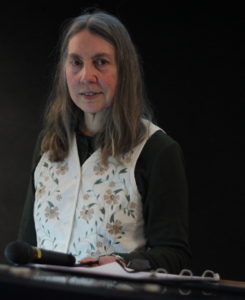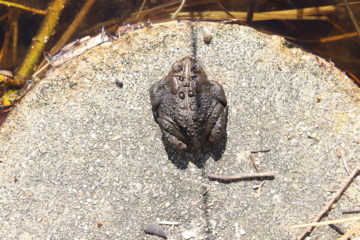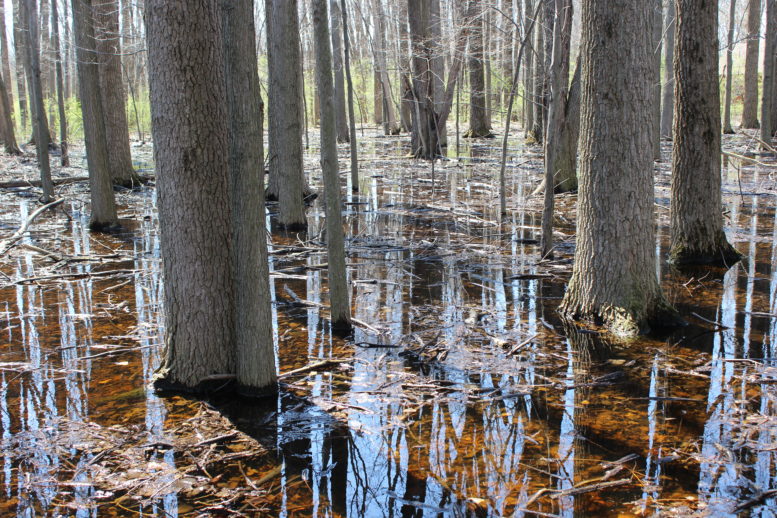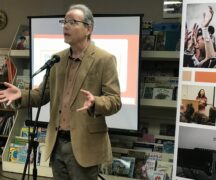By DAVID DUPONT
BG Independent News
The ditches of the Black Swamp collect a lot of material – water, cattails, the occasional vehicle. Poet Cheryl Lachowski’s expansive project “Ditches” takes in even more.

Cheryl Lachowski
Lachowski, who teaches General Studies Writing at Bowling Green State University, gave a presentation earlier this week on the work in progress. She’s nearing the end of a semester-long leave, a welcomed respite from grading student compositions. The time to focus on poetry was made possible through a grant from the university’s Institute for the Study of Culture and Society.
She said it was “unbelievable” that she, as a non-tenure track faculty, could avail herself of such a leave. One requirement is to give a presentation on the work accomplished during the leave.
Ditches are a defining feature of the Great Black Swamp.
They transformed the swamp from wildlands into farmlands, and they form the divide between the two sections of Lachowski’s books.
The first section, which she is finishing up thanks to the leave, is “Watershed.” The second will be “Homestead.” The devoted to the time before ditches transformed the region, and the other afterward. The first before white settlers took hold, and the second when the native populations were evicted from the swamp. The Battle of Fallen Timbers will serve as a dividing line.
The divide between the sections is not so neat. The Black Swamp is not so neat. Lachowski’s sprawling work seeks to encompass all its aspects. She described “Ditches” as a literary montage with ditches serving as an overriding symbol.
Lachowski, who has frequently worked with musicians including a collaboration with composer Tim Story, read her work under the starry dome of the BGSU planetarium to the ambient sounds created by a number of musician.
That montage includes verse, entries from a gardening journal, news reports, a story for children, and bits of the diaries of long-gone inhabitants.
Lachowski even stops to record the bumper stickers on the vehicles outside the visitor center at the Ottawa National Wildlife Refuge. One read: “There’s room for all God’s creatures on the plate right next to the mashed potatoes.”
 Lachowski said that the sense of connection to the soul the swamp is gone, leaving in its wake a spiritual disconnection.
Lachowski said that the sense of connection to the soul the swamp is gone, leaving in its wake a spiritual disconnection.
Also displaced are some of the creatures. Bison have long since departed the swamp for the more amenable plains. The swamp was also home to millions of frogs. Before the swamp was drained, the frogs inhabited “a water-logged stage the size of Rhode Island. … It would have been a full-blown cacophony,” she said, akin to “an avant garde symphony.”
And the swamp bred disease as well, a variety of fevers that fell earlier settlers. For a few lines in Lachowski’s work, those people are alive again, if still in terror.
While the leave allowed her finish “Watershed,” the “Homestead” section said will have to wait until she retires. That’s still a few years off, she said. In the meantime, she’ll continue digging into the project, writing in pencil on the blank back sides of recycled papers.


